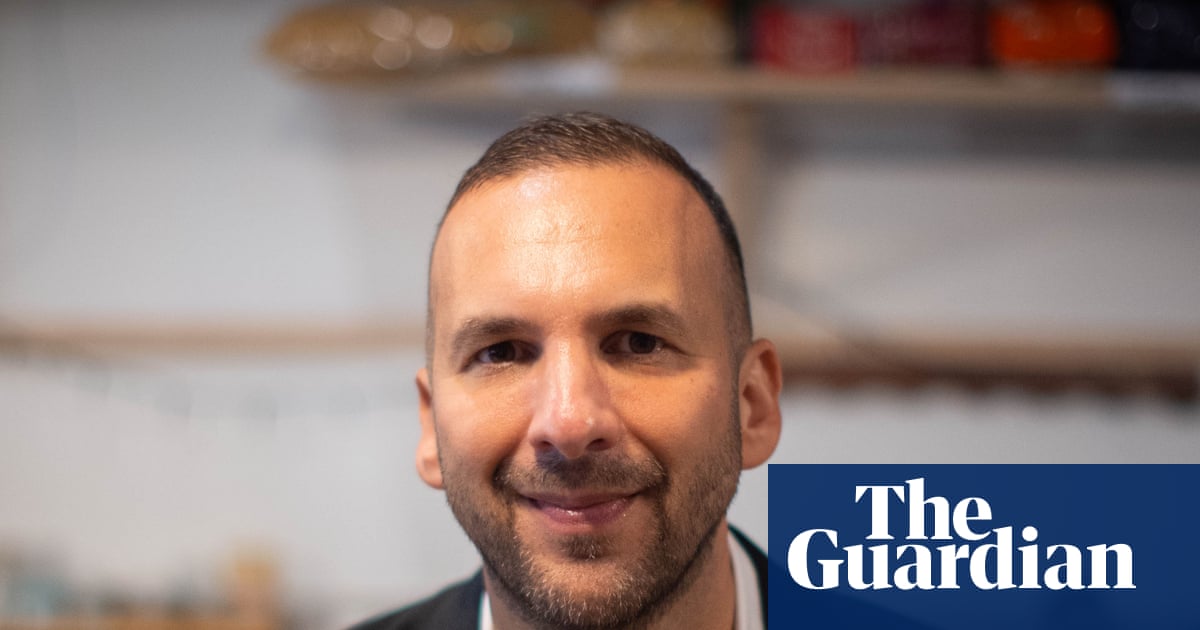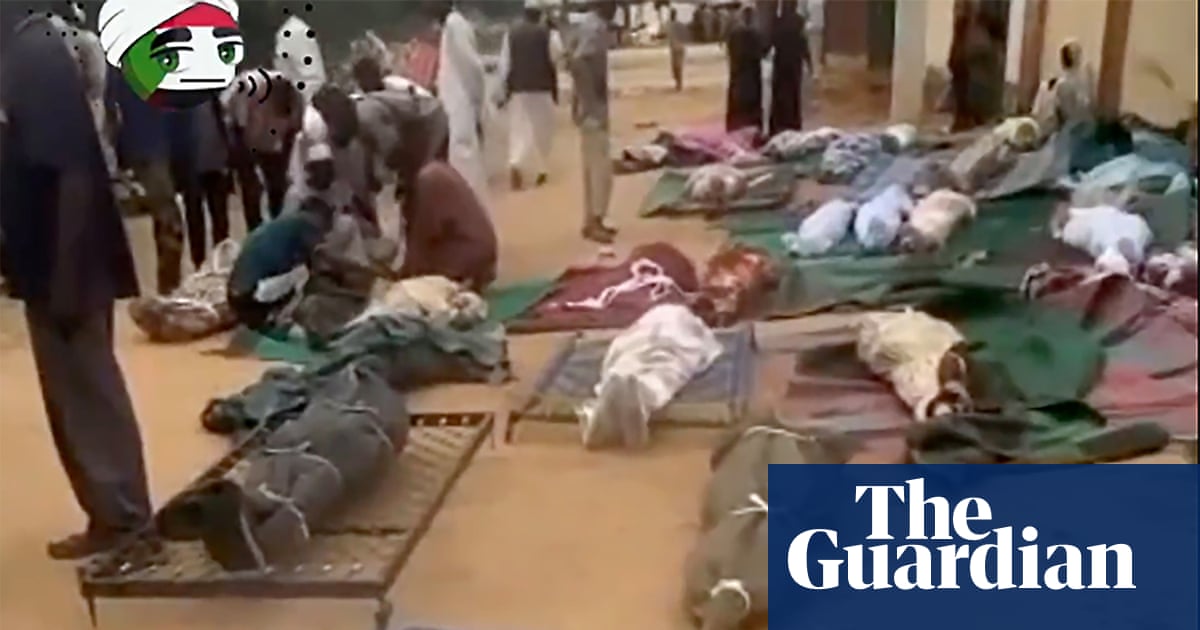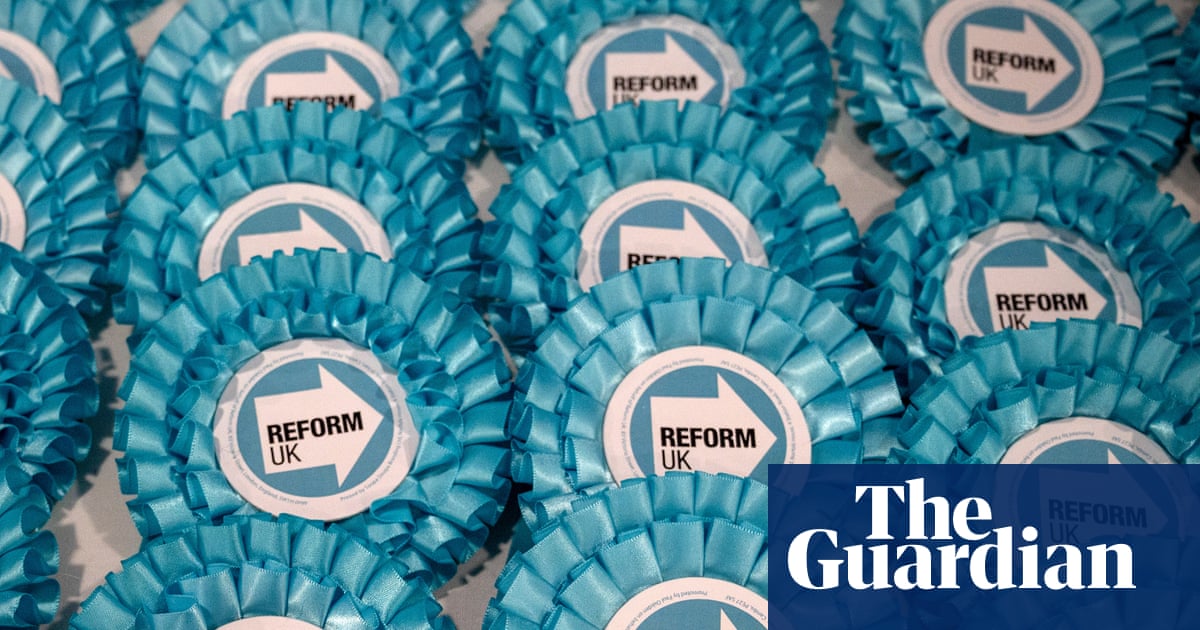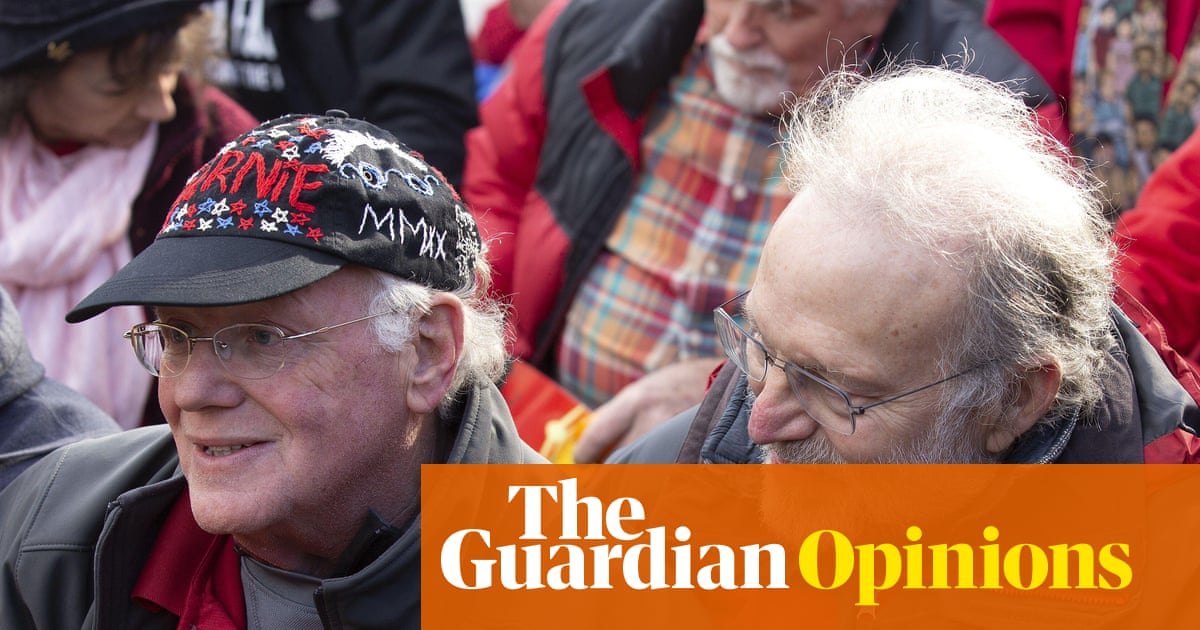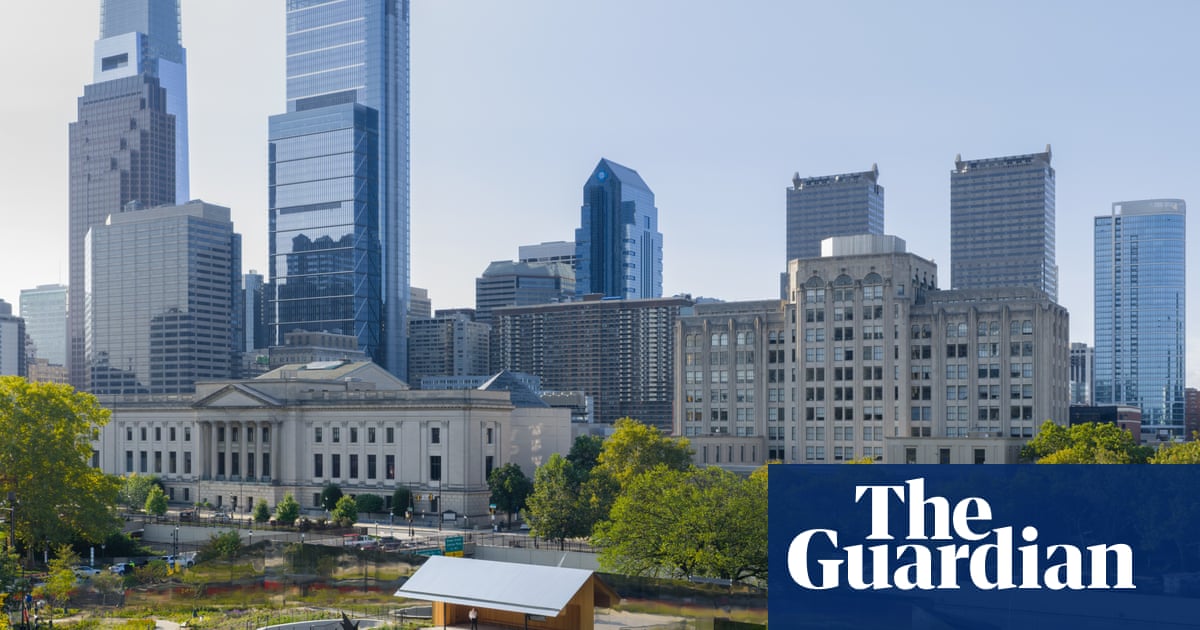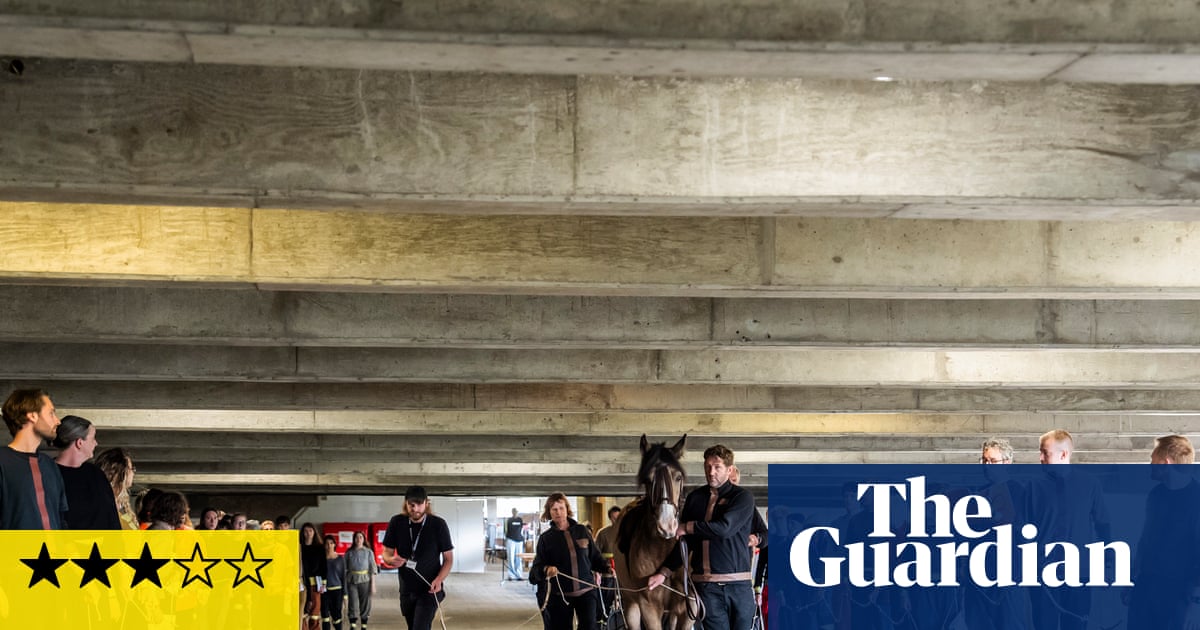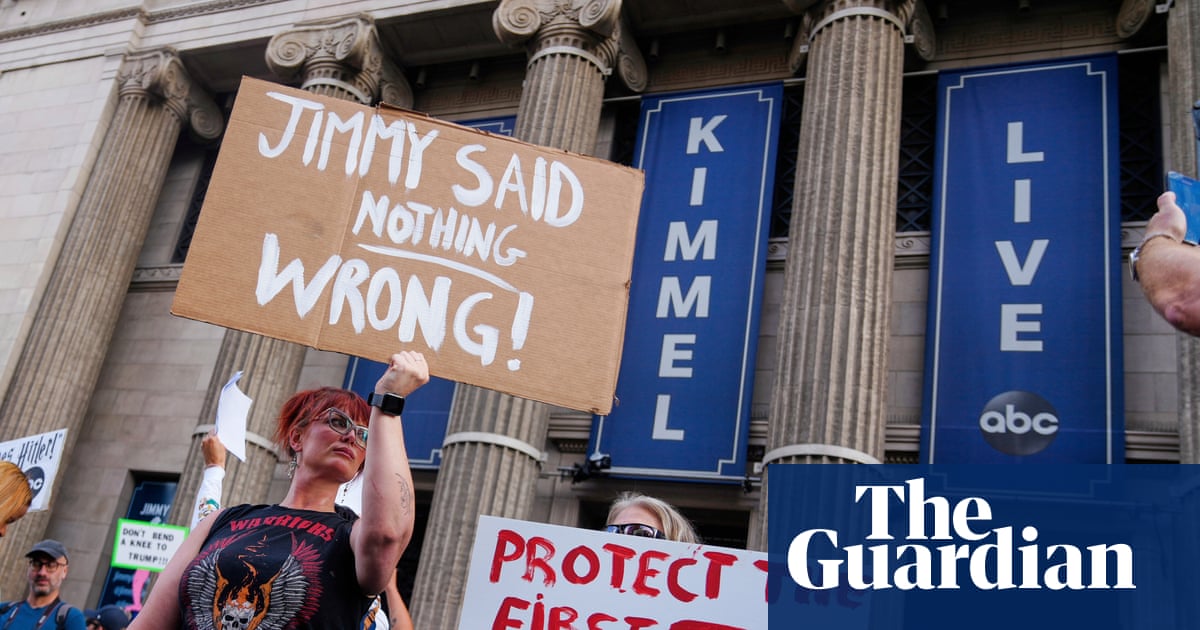Lake Worth Beach, a small coastal city of about 45,000, sits in the shadows of Donald Trump’s Florida residence, Mar-A-Lago. A 10 minute drive from “Maga”
HQ, it is sometimes optimistically referred to as “mini San Fran”, with a largely progressive, white middle class occupying its beachfront bungalows and a local economy built on tourism, retail and construction.
It is also home to many undocumented and temporary visa migrants, who work at fruit farms and restaurants, landscape gardens and support the area’s affluent households. Though data on undocumented people is notoriously hard to collect, the 2024 census estimates that nearly half of the city’s residents are Hispanic and include Guatemalans (many of whom are Indigenous Maya), Mexicans and Venezuelans.
The day after Trump’s January inauguration, “a switch flipped” in Lake Worth, says Mariana Blanco, director of operations at the local non-profit the Guatemalan-Maya Center (TGMC). Immigration and Customs Enforcement (Ice) cars began patrolling the streets, raiding grocery stores, churches and schools, as well as working with the local police to make arrests.
“If you say you’re going after criminals, you don’t have [agents] sitting outside a construction site all day waiting for workers to come out,” says Blanco. “You don’t do that unless you’re planning to arrest poor, brown, working-class men from disenfranchised communities.”
She estimates that about 70% of center users who attend their regular immigration check-ins or court dates have been deported, detained, or given an ankle bracelet and 90 days to “self-deport”.
The anti-immigration sentiment has grown in the city. The center regularly receives abusive phone calls and, earlier this month, they scrubbed the words “fuck u” off the building’s exterior wall. In February, residents who took part in a Latinos Unidos protest against mass deportations were met by Maga counter-protesters.
TGMC has been the beating heart of the local migrant community since it opened 30 years ago, supporting about 16,000 families each year. In a sprawling building on the edge of a highway, mothers and children convene for everything from youth groups and essential healthcare services to breastfeeding sessions, food banks and “know your rights” classes.

Since Trump returned to the White House, however, the center and the surrounding streets have become eerily quiet, as locals keep a low profile for fear of being arrested or deported.
Many in the community also feel vulnerable to a host of secondary factors. When a teenager in the community recently died by suicide, the community center newsletter described him as “isolated and cast down in the wake of the current crisis”.
“He was a 14-year-old who had been expelled from his school back in December and moved to a different school,” Blanco says. “His mom didn’t feel like he would be safe in school if Ice came. They kept him home from January to April and we lost him in May. When you’re living in a household where everybody is fearful of law enforcement, where you’re not opening the windows, that plays a huge role in your mental health.”
The impact of Trump’s deportation crackdown on Lake Worth Beach has been devastating.
“It’s such a different reality that is divided by a bridge, only a few miles away,” says Blanco. “That’s what’s so dystopian about it. While Trump comes to host opulent dinners at Mar-a-Lago, across the bridge families are being tormented by Ice. They are being ripped apart literally from their children’s arms as the wealthy party next door.”
Here, five Lake Worth Beach residents, including a gardener, a teacher, an interpreter, a community center worker and a priest, tell their stories of survival.
The gardener whose work papers were lost by Ice: ‘They transferred me in shackles’
Cristian Alvarado, 45, Gardener, Guatemalan with a US working permit
At 7am in March I was heading to my gardening job with five workmates when two Ice cars pulled us over. They asked to see my license and everyone’s IDs. They reviewed my record and told me I would be detained. I told them I had gone through court and done everything necessary to be here on a working permit so I didn’t understand why they were arresting me. But it’s hard to speak to them when they’re being so aggressive.
They told me that I was suspected of having gang affiliations. I had been detained in 2011, before I had my work permit. It was in a poor area of West Palm Beach where there was a lot of gang violence, so it was on my record that I was part of that, which is not true at all.
I was able to call my wife before they took my phone. All she could hear was people shouting at me to sit down. I said: “I’ve been arrested by Ice” and then hung up.
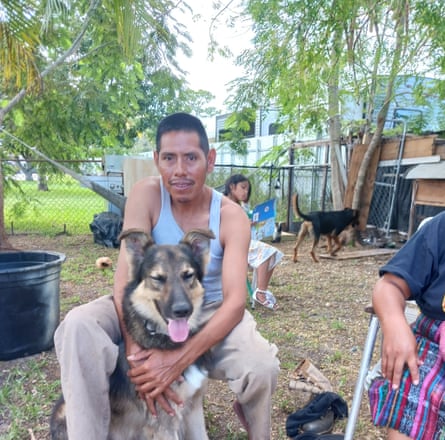
I was taken by bus to Krome detention center in Miami. We all had handcuffs on our wrists and chains around our waists and feet. They left us on the bus all night. When they finally let us off, they put 38 of us in a room for 20 people. We asked to make phone calls and they refused.
There were no beds or sheets. We slept on the floor with this extreme air conditioning hitting us that they wouldn’t turn off. It felt as though they were doing it on purpose. We were all wearing what we were arrested in. I got sick while I was there and to this day I have problems with my throat. There was a rumor among the detainees that two people had died from the cold.
The officers would bring in food and then quickly leave, like we were animals. There were two toilets out in the open in the room. Nobody cleaned them the whole time I was there. Some officers were fine, some were aggressive. I never felt as though any of them would actually help me. We would ask what was going on and they wouldn’t respond.
After five days they allowed us to leave the room for the first time. We had six minutes to take a shower and three minutes to call home. That was the first time I got to speak to my family. I was very emotional, but happy because I could hear the voices of my wife and five children. I couldn’t tell them it was going to be OK, because I didn’t know. The whole time I was in Miami I was allowed to call home three times. All calls were capped at three minutes.
On 31 March, very late at night, they transferred me to Texas on a flight, in shackles again. I was there for 15 days. My lawyer finally arranged a jail bond of $1,500. Ice had my wallet, permit, visa and phone; when my lawyer tried to get it back they told him: “That stuff is long gone.” So when they let me out I had no money in my pocket, no phone, no ID. My passport was here in Florida.
My lawyer arranged a taxi from the detention center. When I got to the airport, I had to borrow phones from random people who were willing to help. My 19-year-old daughter flew to Texas, found me, gave me my passport and brought me back. We had to pay for all of those flights.
I was very happy to see my family again when I got back to Lake Worth. It’s the biggest blessing. An immigration charity is helping me try to get my papers back. I can’t get a driving license without the papers to prove I have a work permit. I’m back working and I have a constant fear that I will be pulled over by Ice. I still don’t know why I was detained, so there’s nothing to say it won’t happen again.
Lorena Felipe, 22, TGMC clinic coordinator, Guatemalan-heritage US citizen
For me Lake Worth is home. It’s like one big family. I love living here. But right now I don’t feel safe. In my job at the center I help uninsured patients navigate the health system and get access to things like pap smears and prenatal care. Every day now we hear about people being detained, families being separated, kids being left behind. The other day a woman came in with an ankle monitor. She’d received an email out of the blue telling her to check in at the immigration office. We did some research for her and it turned out she’d signed her own deportation order while she was there, without even knowing it. She has children here. She now has 90 days to leave the country.
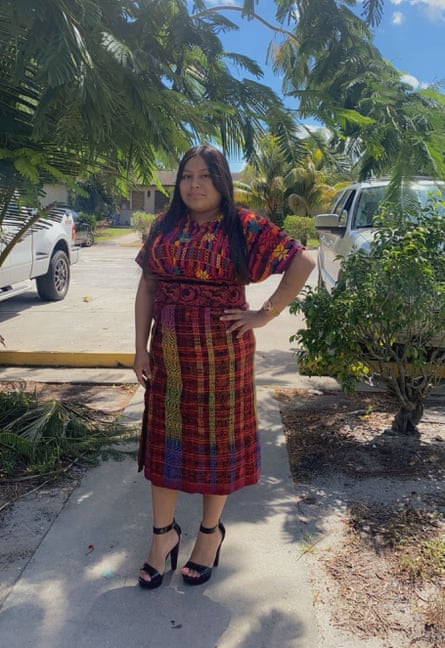
I have worries at home too. My parents came here as asylum seekers from Guatemala when they were 14 years old. My dad is a supervisor and does landscaping maintenance and my mom works in a factory washing hospital and restaurant sheets.
When my dad remembers what happened back in the Guatemalan genocide, he cries. In 1980 they murdered my grandpa and my newborn baby uncle. His right ear got messed up because of the bombs. My mom says: “I know I was born in Guatemala, but if I pass away, bury me here.” America is home for them. They have status but, with everything that’s going on right now, they have a fear of being sent back.
We recently had a whole conversation, my dad telling me what he wanted me to do if he got detained. That night, I went out at two or three in the morning. I parked at a gas station and just started crying. I couldn’t hold it in anymore.
That’s when I had my own personal experience with current law enforcement and it was so shocking. Some cops came over and I was so upset I couldn’t speak; I was just shaking. They took me to the hospital and put me on a psychiatric ward under the Baker Act [a Florida law that allows involuntary commitment for 72 hours of people who are considered to be an imminent danger to themselves or others]. I was there for more than 24 hours, in a room with lots of other people screaming and yelling.
I didn’t want to tell anybody I was there and I wasn’t allowed to leave. But I ended up calling my mom and dad to get me out. I didn’t want to stress them out but I was terrified I would be transferred to detention in Fort Pierce. I just remember looking around at where I was and thinking, “How did I end up here?”
The undocumented mom who’s making plans for her kids: ‘I worry we’ll be separated if I get caught’
Esperanza, 44, housekeeper and volunteer at TGMC, Guatemalan, undocumented
I volunteer as an interpreter and people call me from detention. They often don’t understand what the immigration officers are saying and I try to explain. They’re so excited to have someone answer the phone but they don’t realize that I can’t actually help them. I have to explain that I’m not a lawyer and I can’t promise them anything. You can hear their voice change. It’s so sad. They are desperate.
At TGMC I take care of anything that’s needed. That’s how we do things here. I’m the boss for the people. I organize the volunteers. I clean. Everything.
I came here by myself from Guatemala when I was 17 years old. It took two weeks to cross the desert. I was very scared and the coyotes [people smugglers] tried to abuse me. But when you’re dreaming of something, you just focus on how you can go and get a better life. That’s how you do it.
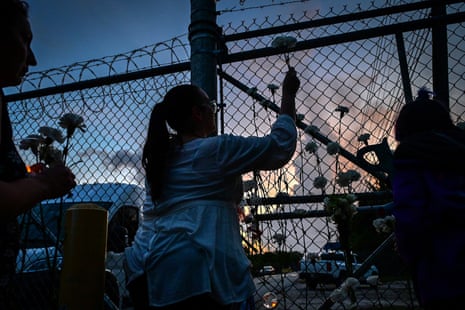
I now have three children between the ages of 20 and 12. They were all born here so they have status. But Trump keeps making new decisions. He might take away their citizenship. I’m worried I’ll be separated from them if I get caught. So TGMC helped me to do a power of attorney – the center are doing it for all undocumented parents now. It feels so hopeless to have to do it. I told my children that if something happens to me they can live with their godmother.
But they text me all the time. They say “Mommy, mommy, be careful because the police is coming” or “Mommy, are you OK?” I tell them: “Don’t stress, just focus on your school.” All of the kids now are so stressed, they say they don’t want to go to school. They’re worried that while they’re at school their mum and dad will be picked up.
The teacher who’s dealing with truancy and swatting calls: ‘It’s a scare tactic’
Kathleen Cuellar, 30, bilingual school psychologist, Nicaraguan naturalized US citizen
I do something called comprehensive psycho-educational evaluations. During Covid, in our write-ups we might have said something like: “This child is affected by the current circumstance, this may not be a true representation of their ability.” I don’t know the full fall-out yet because we’re so in it, but what we’re going through now feels like a similar event for kids with mixed immigration status or who are concerned about their parents being taken away. We’re not going to know for maybe a year or two just how badly this has affected them academically and developmentally.
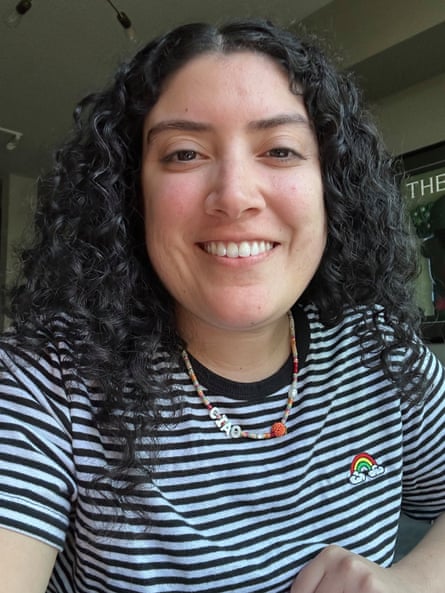
I also tutor at TGMC, where we offer extra English help to children who speak Spanish or a Mayan language at home. There were swatting calls [hoax phone calls to report serious crimes or emergencies] being made, reporting that something dangerous was happening in one of the buildings, which would bring lots of armed officers in without a warrant. [Swatting calls allow law enforcement to enter a building without a warrant.]
It’s a scare tactic. That safe space that used to be for the kids doesn’t feel so much like a safe space any more. So the kids just aren’t coming into the classes.
It’s happening in the schools as well. At some point we have to recognize that this is a really big issue, our kids being truant. Currently there is no explicit guidance that tells schools how to handle these situations. That leaves staff to feel very vague about what kind of help you can give to these families. If kids aren’t coming, what do we do? Teachers can’t promise parents that Ice wont show up at their kid’s school, because there’s every possibility that they will.
The child who committed suicide recently was going through extreme stress. There was no response by the school because he had not been attending for a while. School is where these children are spotted. Teachers are experts at noticing and passing that information on. If the kids aren’t in school, I can’t help them.
The priest who’s sounding the alarm about Ice raids: ‘We were shouting from car windows’
Father Frank O’Loughlin, 83, founder and executive director of TGMC, Irish-born US citizen
When I first came here from Ireland as a priest 60 years ago, the only time the migrants would see the border patrol was when they would show up on behalf of the growers to move the workers to the upcoming crop in North Carolina.
I remember when I was the new guy in a parish in West Palm Beach, a group of five or six men came knocking on my door with a baby in their arms to ask if a priest would do a funeral. I had virtually no Spanish, but we said our prayers. At that time the families of the workers were sleeping in the warehouses where the chemicals were kept, so the pesticides were killing babies.
I started working with a group of young lawyers who had dedicated themselves to the migrant cause. The first time we made it into court, it was with a woman whose father had been shot dead and brothers tortured – or as she would put it, “skinned alive” – by the Guatemalan military in the 80s. They used her baby sibling “as a soccer ball” and raped both her and her mother. The woman and her mother managed to escape, but they lost each other in the cornfields. She had found her way to Indiantown, near Lake Worth, in the vain hope of finding her mother. When she told this story in court, you cannot imagine the anguish. At the end of it all the judge said: “So your father’s dead, your mother’s gone. But what is your case?”
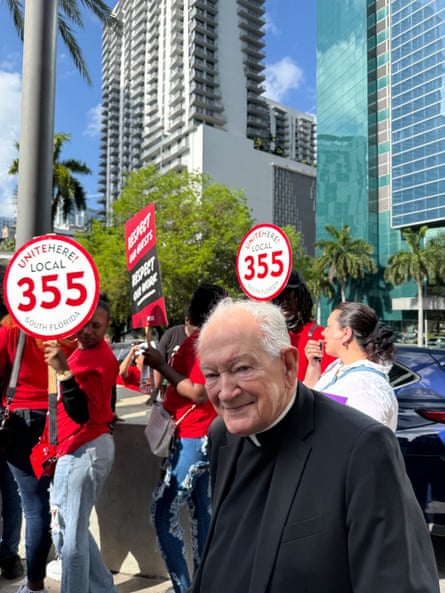
So it’s much easier to come here and exist as a worker under the radar than it is to make a real claim. That’s what people have always done. They’ve lived these underground clandestine lives. We want to pretend that we ended slavery. Look at a state like Florida and it is patently obvious that all we did was find a way around it. It now feels as though it’s something to cherish that we were once a part of international accords that assured people’s safety. Those international accords don’t seem to register with the new regime.
This is where we’ve got to in 2025. Last night we were driving around Lake Worth, clearing the streets as people were coming home from work. I have very little voice anymore, but we were shouting out the car windows: “The Migra are on B street,” where there was an Ice raid going on. We cleared the streets of people, but there was nothing more we could do.
Unfortunately we’ve seen a lot of family separations lately. In March we received a call from a concerned staff member at the local school about a 12-year-old boy named Amílcar whose father – who had no criminal history – had been deported. We’re always grateful when people let us know, because when parents of undocumented children get deported the foster care system won’t take them in. If nobody tells us, then the kids get lost in the system, which is really scary.
Amílcar was looked after by his father’s co-worker while we worked with the Guatemalan consulate to get permission for him to travel without a passport. He was all smiles at the Miami airport until he realized he would be boarding the plane alone. His panicked reaction caught the attention of a woman sitting nearby who said she would stay with him at the airport in Guatemala. He kept asking her if she would take him home with her if his father wasn’t there to meet him. She reassured him several times that she would stay with him until he was in his father’s care.
That little boy was so vulnerable, but it was lovely to see his spirit and the kindness of the strangers who helped him. A generation of innocents are being met by the most primitive of reactions. Every day I witness new braveries in the face of this oppression.

 3 months ago
73
3 months ago
73
